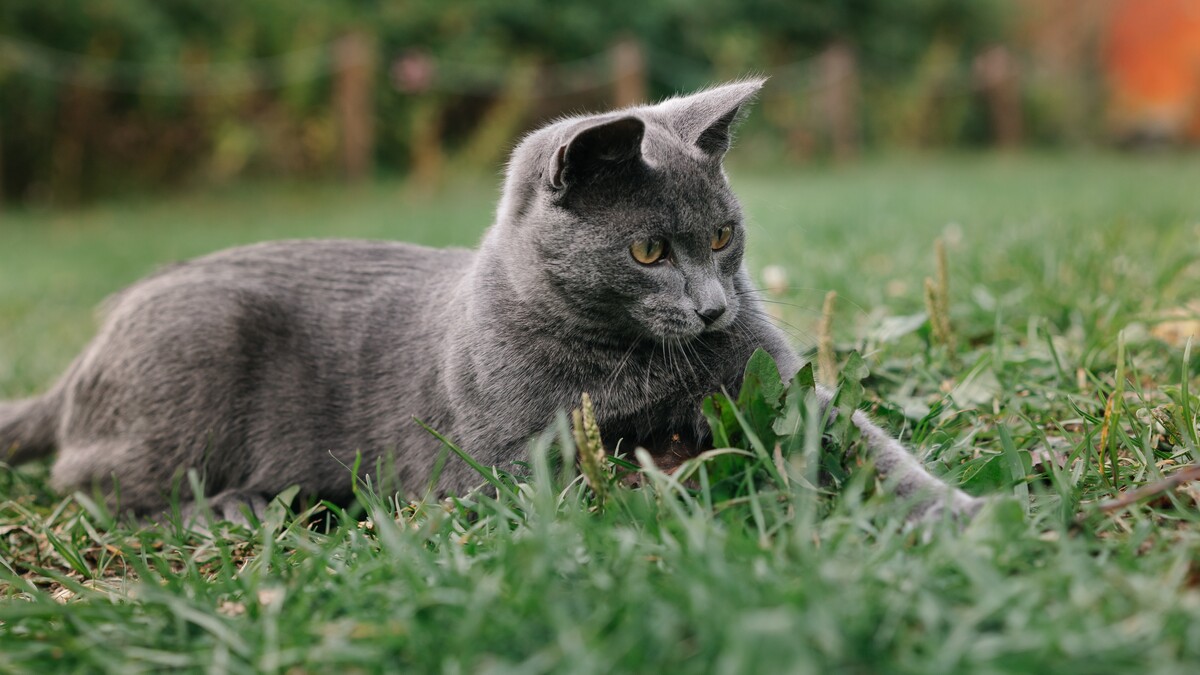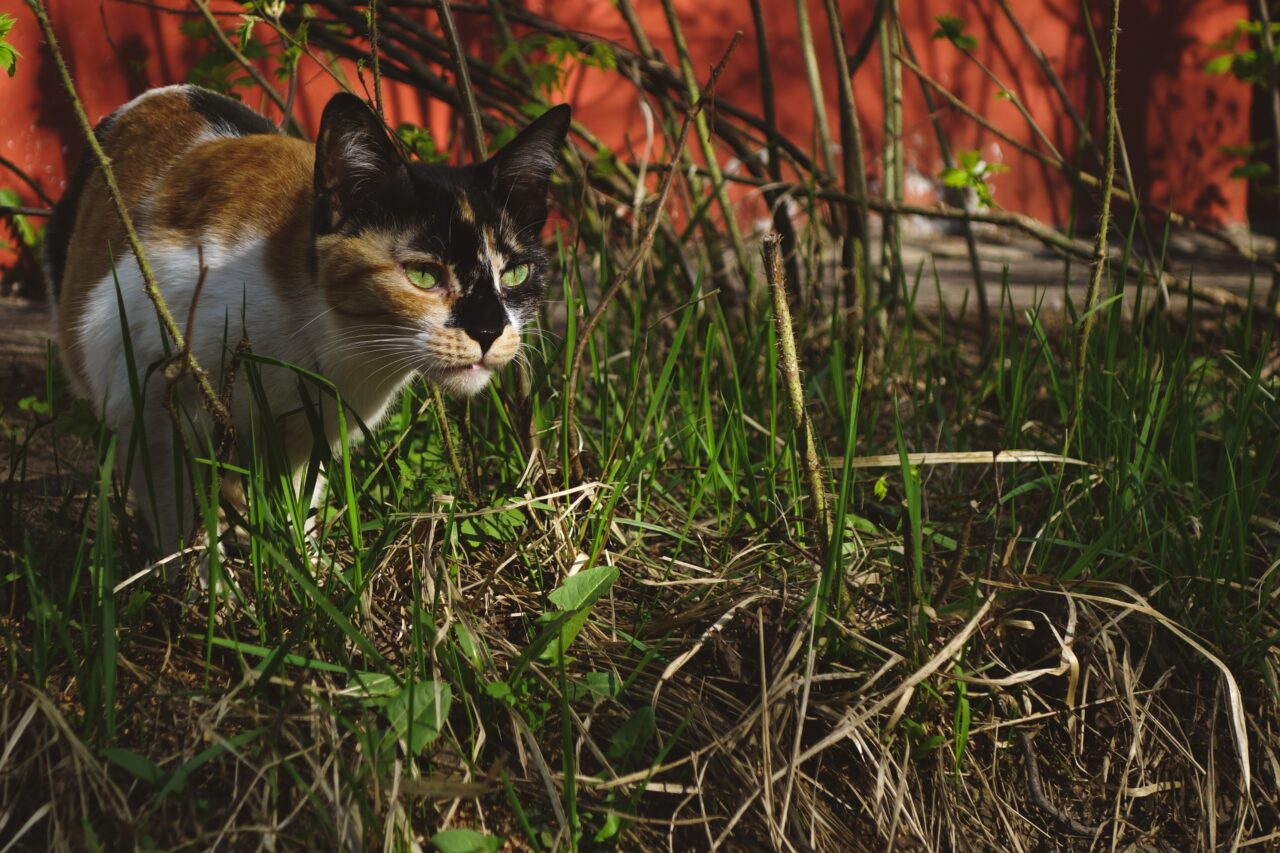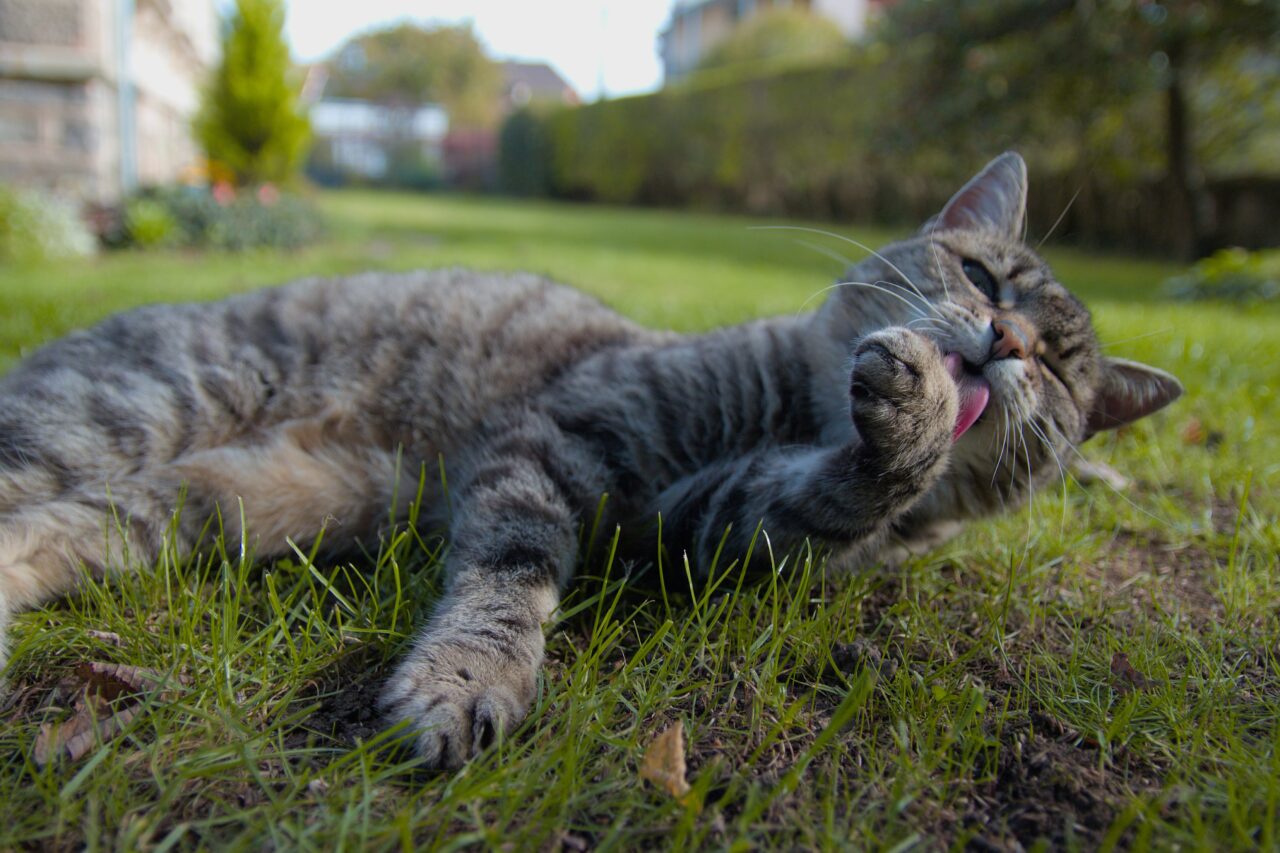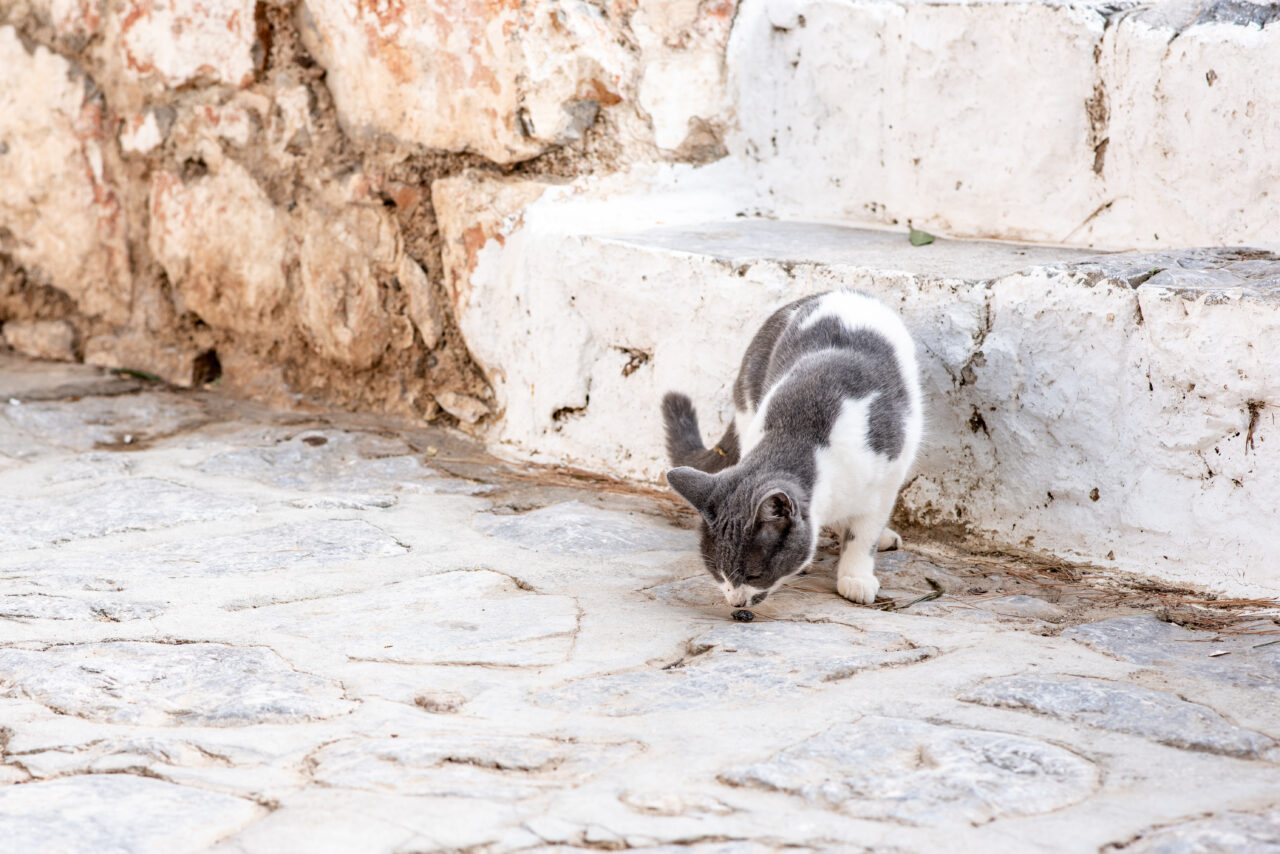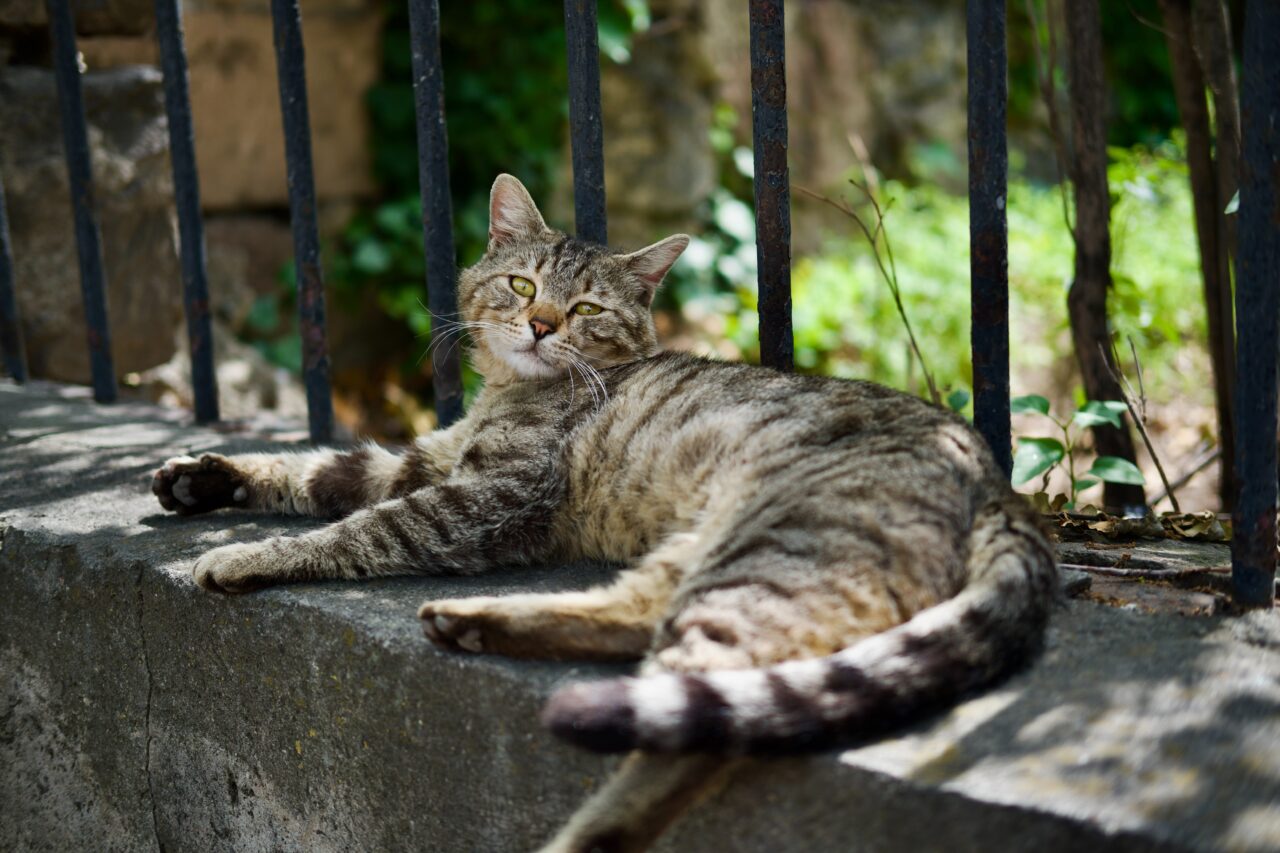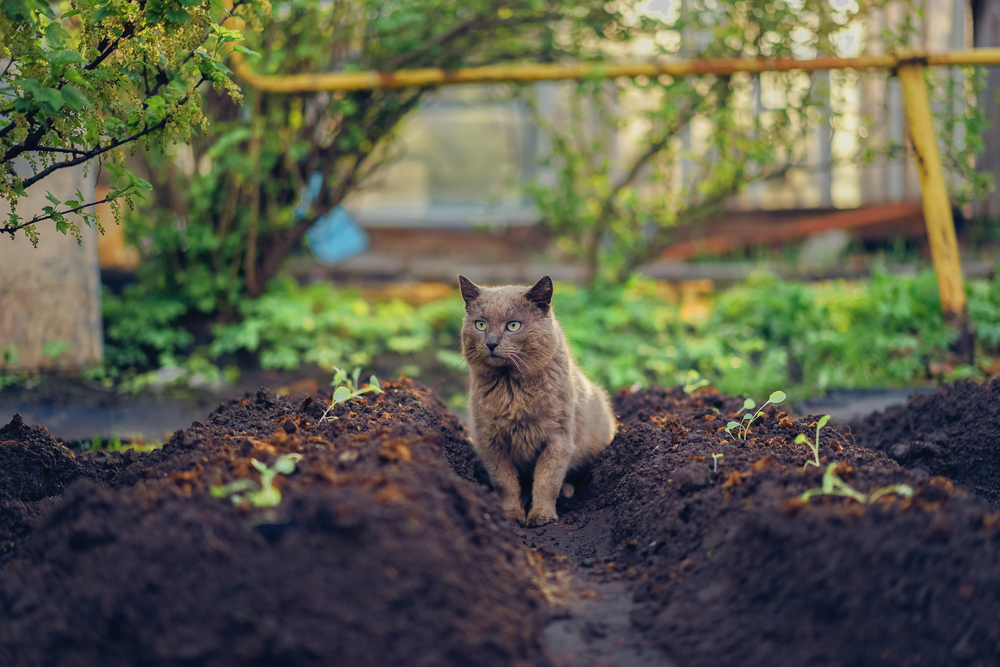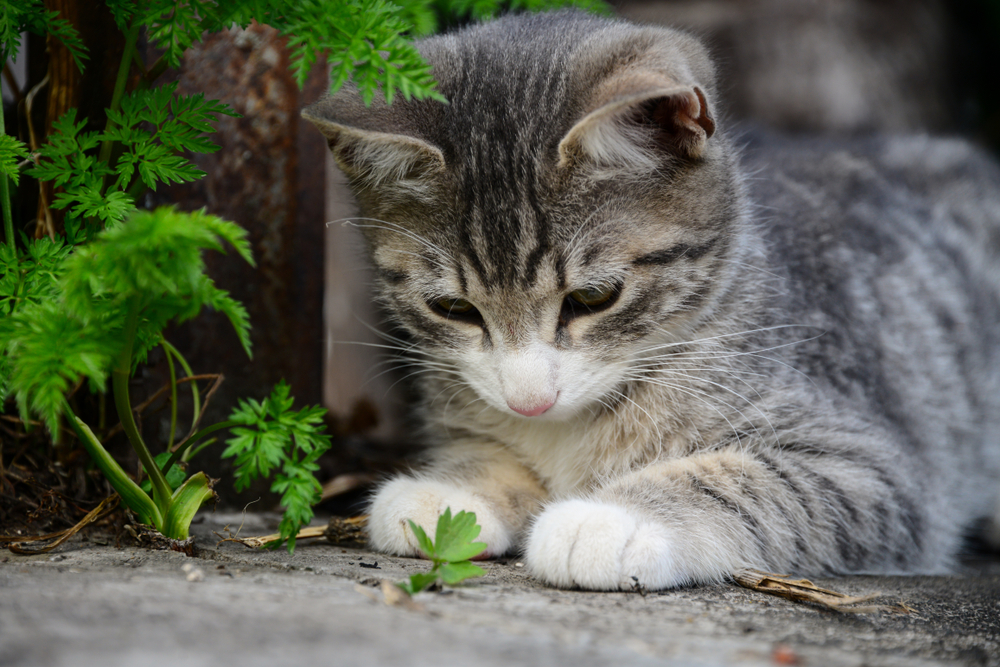📖 Table of Content:
“Yesterday I was chilling in my backyard with my favorite iced coffee when I noticed my cat acting strange. I observed her for a couple of minutes until I realized the weirdest thing ever: she was munching on ants. Why is my cat eating ants, Aria?”
I got this message a couple of days ago from a very dear friend and a fellow cat parent. She was genuinely concerned with her fluff’s strange behavior and she demanded answers. She even took her kitty to the vet and thankfully she was okay.
My friend was relieved when I told her that a cat eating ants is not something she needs to be worried about. However, it’s also not something that should be completely ignored.
If you’re like my friend, and you have no idea what it means when cats eat ants then keep on reading.
Why is your cat eating ants?
Well, if you’re wondering why is your cat chasing after such a weird choice of food, you first have to understand the circumstances in which she is eating these tiny insects.
Is she eating them because they are crawling all over her food? Or because she noticed them walking past her and simply got curious?
Either way, it probably has little to do with her being hungry.
If your fluff’s food bowl is full of ants, and she is eating them, that’s only because she simply cannot get them out herself.
It’s true, there are some sassy kitties who wouldn’t even want to get their little rosy nose close to a bowl full of ants, no matter how delicious their food seemed. But some felines just don’t mind consuming an ant or two (more like twenty) while they’re devouring their favorite meal.
If, however, your fluff seems intrigued by ants that are crawling on the ground near her, and she starts chasing and eating them, that’s because she is acting on her hunting instincts.
Catching ants or other insects like flies, for example, is a fun and mentally stimulating activity for our feline friends. By chasing and eating those ants in your backyard, your furbaby is exercising her hunting skills and practicing her role as the dangerous predator she is.
Are ants even nutritious?
Believe it or not, ants do have some nutritious value. They contain certain chemicals, like alpha-linolenic acid, for example, which is said to have a softening effect on feline fur. This fatty acid is also found in many plants and oils, like flaxseed, canola, or soy oil, and is often a standard ingredient in cat food.
Apart from this useful chemical, ants also contain nutrients like proteins, iron, calcium, and zinc.
However, keep in mind that all of these nutrients don’t come in large or sufficient quantities for ants to be your kitty’s only meal. In other words, you still have to feed your fluff. Duh!
Do ants make your kitty high?
Maybe you have seen your cat rubbing on the floor over some crushed ants and wondered, “What in the world is up with her?” This weird behavior occurs because the smell of ants makes your kitty “crazy” and seem as though she’s “high.”
When ants get squished and killed, they release strong compounds called oleic and folic acids. These acids serve as ant pheromones which are of course detected by felines’ strong sense of smell.
When your kitty senses these acids, she feels soothed. Then she feels motivated to spread some of her own pheromones by rubbing her body over those poor ants.
So, ants in a way do make your kitty “high” but not in the way we understand it. It’s not like catnip, of course. Nothing is like catnip!
Is it safe for your little fluff to eat ants?
Well, the answer to this question is both, “Yes” and, “No.”
If you notice your kitty has eaten a couple of ants – maybe while playing outside or a few of them were in her food bowl – you truly have nothing to worry about. As we’ve said, ants do have some nutritional value, so eating an ant or two should not be of any concern to you.
Besides, having a cat that’s eating ants can actually be of great use to you. In that case, your fluff is your very own natural pest control, tirelessly working or reducing the number of ants in your household.
However, it has to be noted that eating too many ants can have some serious consequences. As with pretty much anything in life, balance is the key.
You have to ensure that your kitty doesn’t end up eating too many of these seemingly harmless insects since overconsumption can result in some severe gastrointestinal discomforts.
What about fire ants?
Some ants, especially fire ants, can be toxic to your cat. This is because they produce a substance called formic acid in their venom glands which they spray whenever they want to defend or disinfect their nest. They also use it occasionally to disable or even kill other insects.
If your cat eats one fire ant, she’ll probably be fine. However, a larger amount of these dangerous insects can cause an allergic reaction in your fluff. These ants can bite your cat, and their venom can cause her mouth and throat to swell, or it can even be fatal.
If you’re worried your cat has eaten too many fire ants, look for the following symptoms and take her immediately to the vet:
- drooling
- paralysis
- vomiting
- gastrointestinal issues
- lethargy
- muscle tension
- troubled breathing
- seizures
- any type of unusual behavior
What about ants that have been treated by insecticides?
Sometimes when people are dealing with an ant infestation, they use certain insecticides in order to get rid of them.
So, if you or the pest control have treated the ant beds with poison, and your feline ends up eating those ants, it is very likely that some of that poison will end up in her bloodstream. As mentioned before, eating one ant shouldn’t be a problem, but several of them will definitely make her sick.
Your biggest concern, however, should be the possibility of your fluff getting in direct contact with the insecticide you’re using to get rid of the ants. The risk in this situation is much higher – since the amount of the poison is higher, too.
If you notice your cat is digging around poison-treated ant beds, immediately contact ASPCA’S animal poison control hotline or any other animal poison control center.
Do ants carry some diseases or parasites?
The answer is yes. Some ants carry certain diseases and parasites that can be bad for your feline. Although the risk is not as high as with mosquitos and fleas – it’s still there.
One common bacterial disease that ants can carry is salmonella. They can also carry parasites like tapeworms, because of which you’ll definitely have to quarantine your kitty. Both of these diseases can greatly (and negatively!) impact your fluff’s health.
How to keep ants away from cat food?
If your cat is one of those entitled ones, and she doesn’t want to eat food with ants on it, or if you happen to be one of those overly concerned cat parents who want to protect their furball from pretty much everything, then you definitely need some advice on how to keep ants away from cat food.
Here are a couple of things you should keep in mind if you want to prevent your cat from eating ants and protect her delicious food.
1. Keep your cat’s food in securely closed containers
A lot of cat food brands store their product in bags that are, once opened, hard to completely close.
So, instead of leaving the bag open thus allowing ants to freely climb inside, you should seal the opening with a couple of food bag clips or transfer the food to an airtight container. By doing so, you will not only protect the food from ants but also ensure the food’s flavor is preserved.
2. Make sure you regularly wash her food bowl
This one is pretty obvious, but it doesn’t hurt to say it nevertheless: your kitty’s food bowl should be regularly cleaned! You should wash it at least once a day, if not after every meal, especially if she’s an outdoor kitty.
Make sure you never leave food leftovers inside or outside her bowl as that will most definitely attract ants.
3. Frequently clean the designated feeding area
Every time your kitty is done with her meal, make sure you clean the feeding area alongside the food bowl. This doesn’t mean you have to vacuum and mop the floors three times a day. Just make sure there are no crumbs or leftovers when she’s done eating.
Also, every once in a while, mop the floor with a combination of water and vinegar or lemon juice to repel ants. However, don’t overdo it as those smells can deter your fluff, too.
4. Create boundaries for ants around the designated feeding area
One very useful trick you can start doing is creating boundaries for ants around the area where your kitty usually has her meals.
You can use things like chalk, cayenne pepper, black pepper, lemon juice, mint, vinegar, cinnamon, or even food-grade diatomaceous earth (DE).
However, this should not be a long-term solution since your cat can inhale or eat some of these things and be repelled by them. So, it would be best to work on getting rid of the ants altogether and not just repelling them.
